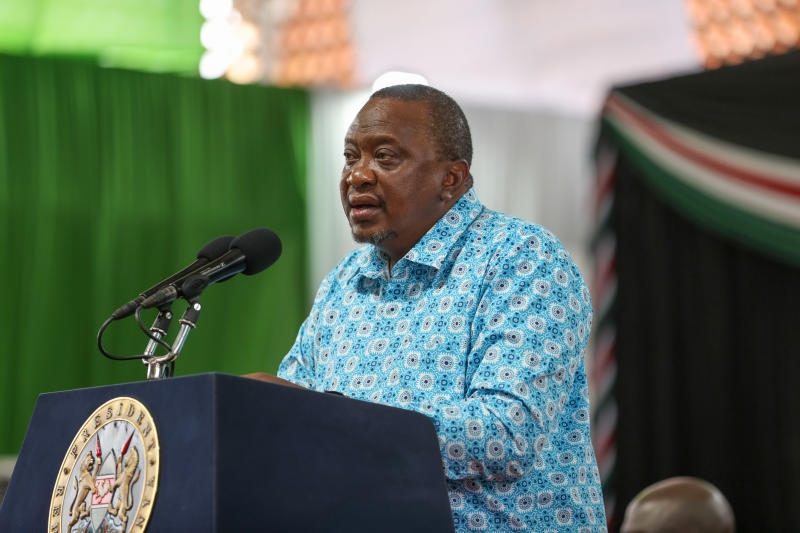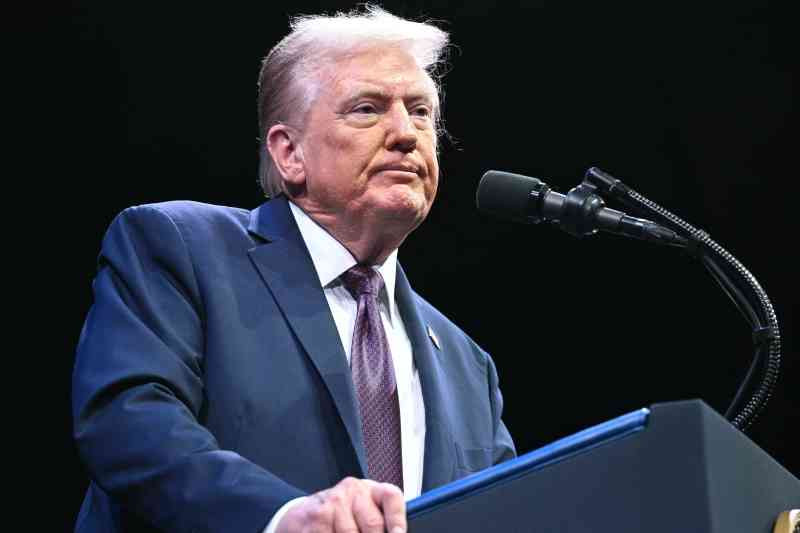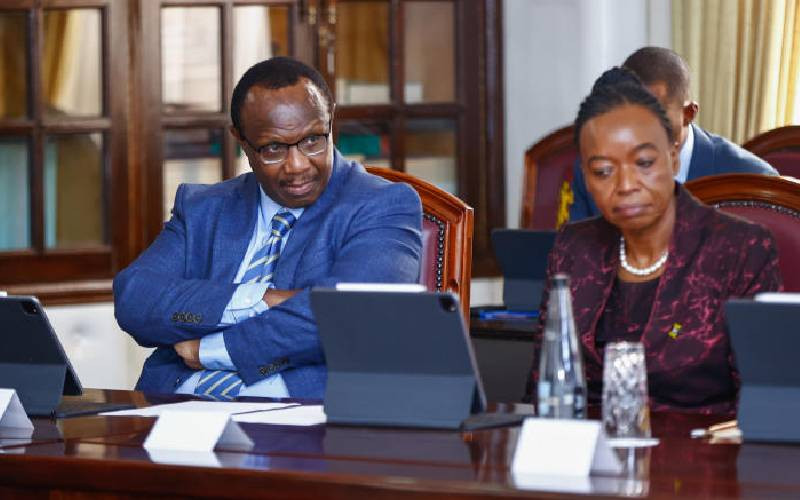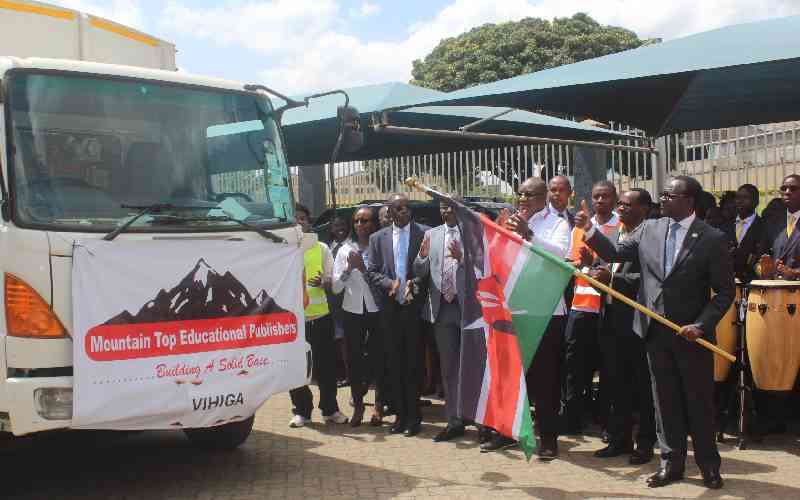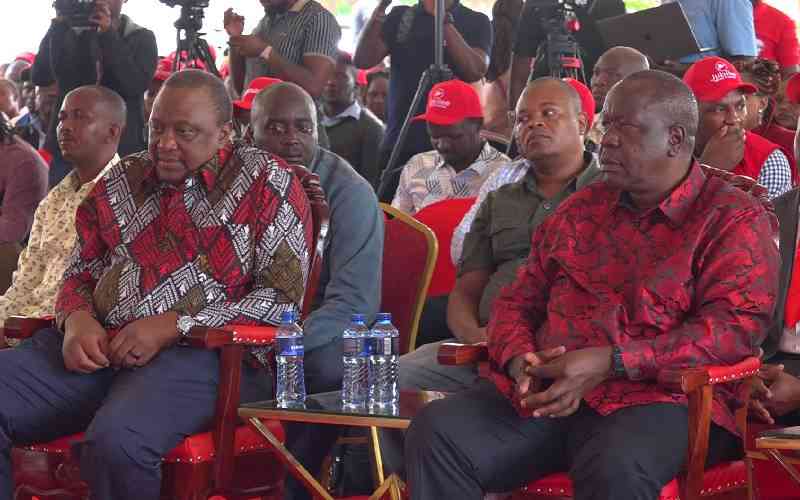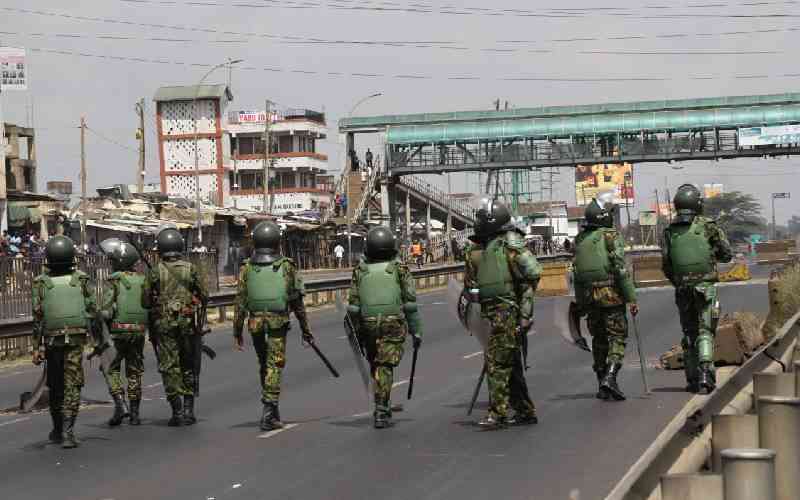President Uhuru Kenyatta interacts with school principals and education stakeholders attending the 45th Kenya Secondary Schools Heads Association (KESSHA) annual conference at Sheikh Zayed Hall in Mombasa County on April 20, 2022. [Courtesy]
×
The Standard e-Paper
Fearless, Trusted News


